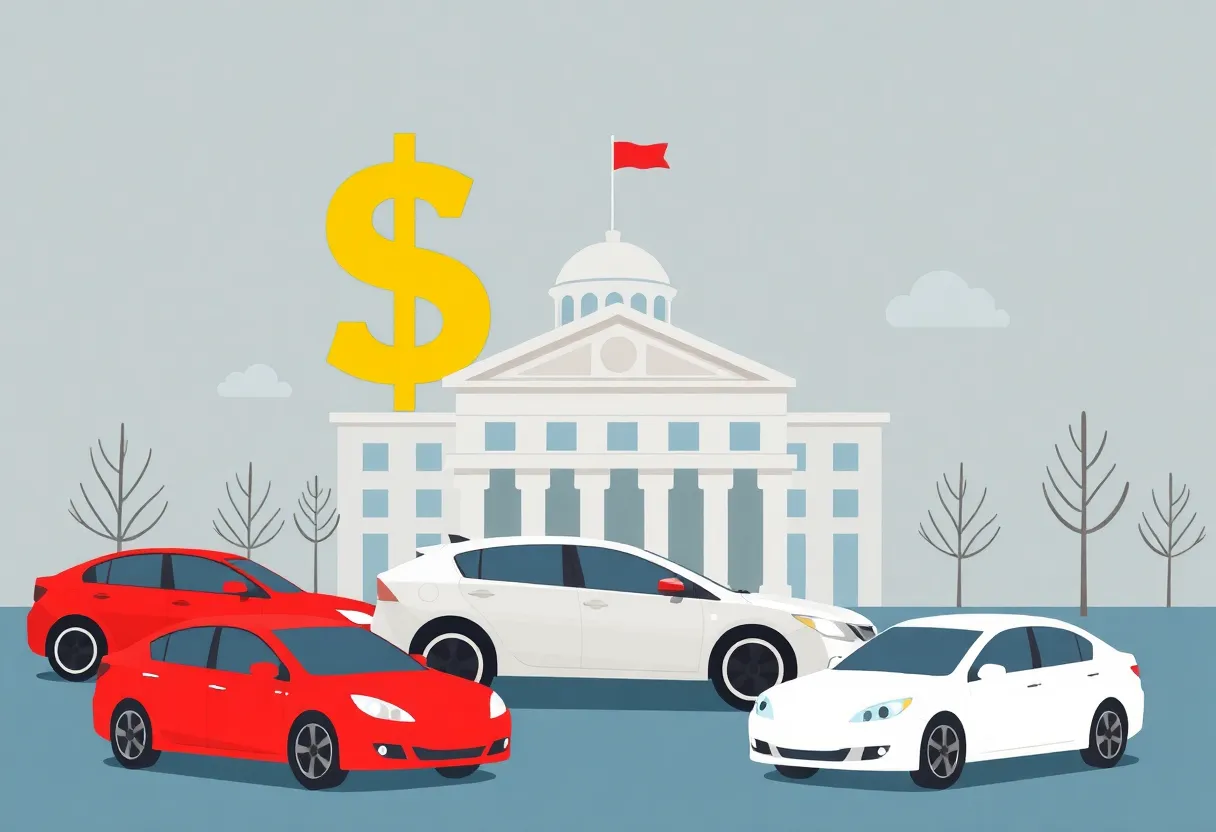News Summary
The Trump administration is set to introduce auto tariffs, relying on findings from a previous investigation into the U.S. auto industry and national security. While these tariffs aim to boost domestic manufacturing, concerns persist regarding potential retaliatory measures from trading partners and higher prices for consumers. Experts are divided on the tariffs’ efficacy, weighing job protection against consumer choice and potential layoffs. As trade relations hang in the balance, the implications of these tariffs remain crucial for the global and domestic market.
Trump Administration Plans to Roll Out Auto Tariffs: What This Means for the Industry
It looks like the Trump administration is gearing up for a significant announcement this Wednesday – the introduction of auto tariffs! This move has caught the attention of industry experts and former U.S. officials who believe the administration will lean on findings from a trade investigation that was carried out during Trump’s first term to justify these tariffs.
The Background of the Investigation
The investigation aimed to assess the state of the U.S. auto industry and national security concerns related to automakers. While the details of the investigation have been discussed for a while, the upcoming tariffs could very well be the culmination of those findings. Industry analysts are particularly keen on how these tariffs will impact both domestic manufacturers and international competitors.
What Auto Tariffs Could Mean
So, what are auto tariffs exactly? Simply put, auto tariffs are taxes imposed on imported vehicles and automotive parts. The purpose of such tariffs is to encourage consumers to buy American-made products, potentially protecting jobs in the domestic auto industry. However, they can lead to higher prices for consumers, as manufacturers may pass the added costs onto buyers.
As the administration prepares to finalize these tariffs, it’s important to consider the broader implications they might have. While some say these tariffs may boost local manufacturing, others worry it could spark retaliatory measures from trading partners, which could affect global supply chains and consumer prices.
Industry Experts Weigh In
Experts in the automotive field have had mixed feelings about the potential tariffs. On one hand, supporters argue that tariffs are necessary to protect American jobs and promote manufacturing within the United States. On the other hand, critics caution that such tariffs could push prices up, limit consumer choice, and even harm the very workers they aim to protect if automakers choose to cut costs through layoffs.
Global Perspective and Trade Relations
We also can’t overlook the impact these tariffs might have on international relations. Countries that export vehicles to the U.S. may respond with their tariffs, which can lead to a trade war that could harm multiple sectors. Keeping an eye on how other nations react will be crucial in understanding the fallout from this decision.
In the Mix: Coca-Cola and Advertising Spending
In a completely different arena, the Coca-Cola Company has been making waves with its remarkable advertising strategies. In 2022 alone, Coca-Cola spent a staggering 646 million U.S. dollars on advertising, making it the most promoted non-alcoholic beverage brand in the U.S. This average annual spending of around four billion dollars showcases the brand’s commitment to staying relevant and engaging with consumers. It isn’t just about creating flashy ads; Coca-Cola has cleverly built upon its rich advertising history, including campaigns featuring iconic elements like Norman Rockwell’s artwork and beloved holiday polar bears.
The Digital Marketing Landscape
With Coca-Cola ranking fifth on Facebook and boasting nearly 107 million fans, the need for effective advertising strategies has never been greater. The digital marketing space is evolving rapidly and is increasingly recognized as a powerful tool, especially for small businesses. The ability to reach global audiences with targeted messaging and cost-effective solutions is redefining how brands connect with their customers.
As digital marketing evolves, companies must adapt their strategies according to changing customer preferences. The demand for skilled digital marketers is projected to grow, making this an exciting field with lots of opportunities. Successful campaigns often rely on a multi-channel approach, combining tactics like SEO, PPC, content marketing, and social media marketing to create a cohesive brand message that resonates with the audience.
The Bottom Line
As we look ahead to the looming auto tariffs and observe powerful advertising strategies from brands like Coca-Cola, it’s clear that changes are on the horizon. Whether these tariffs will bolster the American auto industry or raise concerns about pricing and trade relations remains to be seen. In the realm of marketing, the potential for growth and success is immense—especially for those who harness the power of digital.
Deeper Dive: News & Info About This Topic
HERE Resources
Renovation of the Historic Dearborn Inn: A Blend of Charm and Comfort
Historic Renovation of the Dearborn Inn Completed
Dearborn Inn Renovation: A Historic Gem Reopens
Renovation of Historic Dearborn Inn Completes Major Construction
Historic Renovation and Modern Luxury: The Dearborn Inn Reopens
Historic Renovation Transforms Dearborn Inn into Modern Paradise
Historic Renovation Revives the Dearborn Inn
Historic Renovation of Dearborn Inn Enhances Infrastructure and Luxury
Tesla and SpaceX Express Concerns Over Trade Tariffs
Vice President JD Vance Visits Bay City, Michigan
Additional Resources
- Reuters
- Wikipedia: Automobile Tariffs
- Statista
- Google Search: Coca Cola advertising spending
- Influencer Marketing Hub
- Encyclopedia Britannica: Digital Marketing
- G2 Learning
- Google News: Trump Administration Auto Tariffs
- Shopify Blog
- WordStream








